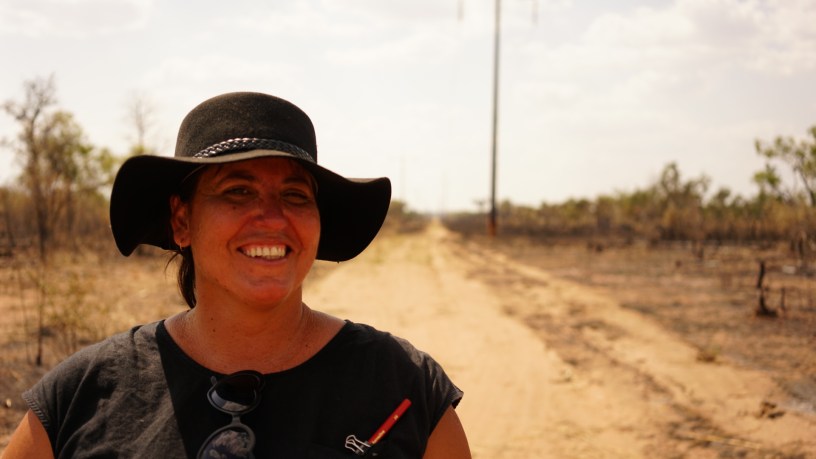Jub Clerc.
All the talk about the need for structural and cultural change in the screen industry must be converted into in widespread action, according to Women in Film & Television (WIFT) Australia.
“This year WIFT Australia’s focus will be on changing systems,” says board member Megan Riakos on behalf of the board.
“For too long our industry has perpetuated structures that reflect wider gender inequity and disparity. Intersectionality means this hits some harder than others. Although there has been public sentiment that supports change, we believe that talk must be converted into widespread and decisive action.
“We must recognise that we as an Industry have the knowledge, intelligence and creativity to forge transformation. We need to stop asking the most vulnerable to bear the burden of this fight. We must understand that we created this system. It’s not natural. It’s not preordained. It can be changed.”
According to writer-producer-director Angela How, the lack of diversity on screens – particularly the paucity of lead roles for people of colour (POC), LGBTQI people and those with disabilities – is still a major challenge.
“The problem lies in the hands of the gatekeepers and decision makers: producers, distributors, funding bodies etc,” says How, whose debut feature, psychological thriller Rock Sugar, is in post.
“With the current funding system, everyone concerned must come to the party for this problem to be fixed. Token gestures/hires of ‘minorities’ as industry attachments and cultural/technical consultants are great but they don’t fix the problem. Until the decision makers are also made up of a diverse pool of people, it will be business as usual; nothing will change.”
Indigenous filmmaker Jub Clerc is looking forward to a year of significant change. “Growing on the incredibly important movement towards 50-50 by 2020, we have seen a change in governing bodies dismissing the use of the word ‘consultant’ when it comes to Indigenous content,” says Clerc, who is set to make her full-length feature film debut this year with coming-of-age drama Sweet As, produced by Arenamedia’s Liz Kearney.
In place of consultant the term collaborator is now being used, often in the capacity of co-writer or co-producer. “This is a very exciting push in policy that complements the existing ICIP (Indigenous Content Intellectual Property) laws that will help elevate more Indigenous arts practitioners into key creatives roles in film, TV and theatre,” she continues.
“Being able to ask the question, ‘How much of my voice do you need, in order for this project to be authentic?’ and having high-level decision makers back you up in the funding round is a step toward transparency in working relationships.”
‘Rock Sugar.’
Filmmaker Riakos, who is also interim chair of WIFT NSW, observes: “Over the past 18 months the global ripple of the #metoo movement has challenged us to become a more open and inclusive industry. It has highlighted the inextricable link between gender inequity and gender-based violence.
“WIFT has worked hard to help create foundations for systemic and cultural change in these areas. As an industry, we must respond to challenges that are unique to the Australian context such as our harsh defamation laws.”
This year WIFT Australia will continue the work of the 2017 Safer Workplace Strategies Forum to help stamp out sexual harassment and discrimination.
Supported by Griffith University’s MATE Bystander program, the organisation will stage a national training tour on ‘ethical bystanding,’ with the aim of empowering industry members to recognise an issue, take responsibility and use tools to effectively interrupt bad behaviour.
A Raising Films Australia advisory board will be created to advocate and support parents and carers in the screen industry, building on last year’s industry-wide survey and forum which found almost three quarters of respondents – of which 86 per cent were women – reported their caring responsibilities had a negative impact on their career in the screen industry.
A follow-up report will be released in mid-2019 with recommendations for industry, best practice guides and case studies.
The Australian Directors Guild continues to run programs for female directors with support from Screen Australia such as the Shadow Directing program which has resulted in every participant going on to jobs in the industry, including Lucy Gaffy, Darlene Johnson and Lisa Matthews.
However as ADG CEO Kingston Anderson observes: “The statistics still show female directors are poorly represented, particularly in the feature film area. We will continue to work with the industry to raise the level of participation for female directors.”
The ADG’s mentorship program in television commercials directing has seen more than 15 female directors attached to TVC companies, with many picking up work for the first time.
Producer/director Ana Tiwary is among many who are hoping for an increase in funding for women and minority practitioner-led projects. With the rise of Netflix, Amazon and other international platforms, the challenge for the Australian screen industry is to create stories that will connect with global audiences.
“Australia is a multicultural society and this is a wonderful, under-utilised asset for the creation of films and TV shows that will travel beyond Australian shores. To achieve this we need our industry to represent Australian society with at least 50 per cent women and 25 per cent minorities at every level in production companies, funding bodies, broadcasters and on our screens,” Tiwary says.
Clerc is also developing psychological thriller The Gooynboon for Animal Logic’s genre label Truant Pictures and a supernatural TV series which was workshopped during the Engendered Masterclass held last December, hosted by Bunya Productions with Raelle Tucker and Jeremy Podeswa.
She concludes: “Collaborations are pivotal for us as a multicultural nation and as the AACTAs have just proven, that when done right, they are done bloody well.”
Check back tomorrow for the outlook for the feature documentary sector.




